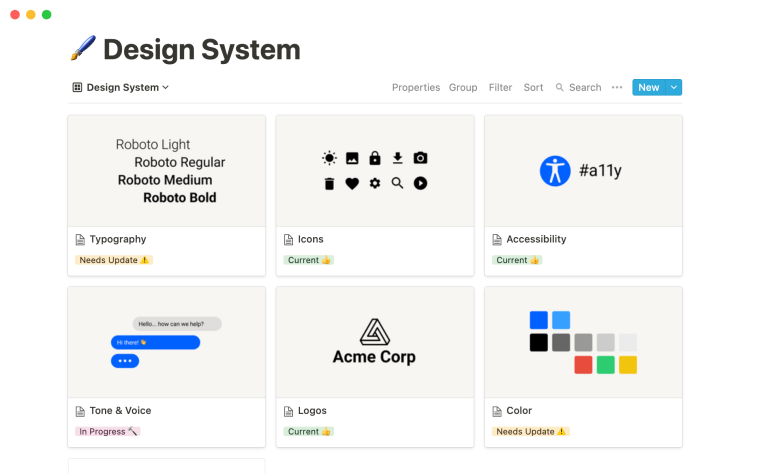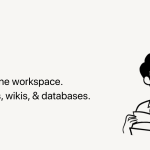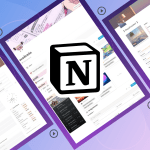Introduction.
Learning a new language is an exciting and rewarding endeavour that opens up a world of opportunities for personal growth, cultural exploration, and enhanced communication.
In today’s digital age, there are numerous tools available to aid in language learning, and Notion, the versatile all-in-one workspace, is one such tool that can revolutionize your language learning experience.
In this article, we will explore how to harness the power of Notion to learn a language effectively.
Whether you’re a beginner embarking on your language-learning journey or an intermediate learner seeking to refine your skills, integrating Notion into your language-learning routine can provide structure, organization, and access to a wealth of resources.
Notion allows you to create a customized language learning environment where you can manage study materials, track your progress, practice vocabulary and grammar, and engage in interactive language exercises.
With its intuitive interface and flexible features, Notion becomes your personal language learning companion, enabling you to learn at your own pace and tailor your study approach to match your learning style.
So, let’s delve into the world of language learning with Notion and discover how this powerful tool can enhance your language acquisition journey, making it enjoyable, efficient, and highly effective.
Hey there, dear reader! We hope you’re enjoying the content on our blog. Did you know we have a treasure trove of other insightful articles waiting for you?
Checkout the links to the article below to become more productive and scale your Notion experience.
- How To Make Money Selling Notion Templates
- How To Make Money Online With Notion
- How To Make Money With Notion Templates
- How To Become a Notion Consultant
- How To Personalize Notion
- How To Use Notion For Social Media Management
- How To Sell Notion Templates On Etsy
- How To Build a Website On Notion
- How To Build Your Portfolio On Notion
- How To Use Notion For Personal Use
- How To Use Notion For Research
Note: While Notion doesn’t offer native language learning features, it serves as an adaptable platform for organizing and optimizing your language learning resources and activities.
How Do I Learn a Language With Notion?
Notion offers a wealth of features and functionalities that can be customized to suit your learning style, allowing you to manage study materials, track progress, practice vocabulary and grammar, and engage in interactive language exercises.
By leveraging Notion’s flexibility and intuitive interface, you can create a personalized language learning environment that adapts to your specific needs.
Step 1: Set Up Your Language Learning Workspace.
Begin by creating a dedicated section or page in Notion to serve as your language learning workspace.
This will be your central hub where you can organize study materials, track your progress, and set goals.
Customize the layout, create headings, and subheadings to categorize your content and make it easily accessible.
Step 2: Curate Learning Resources.
Gather a variety of language-learning resources within your Notion workspace. This can include textbooks, online courses, grammar guides, vocabulary lists, language exchange platforms, podcasts, and more.
Create sections or pages to categorize and organize these resources based on your learning goals and preferences.
Step 3: Design Study Plans and Goals.
Develop structured study plans and set achievable goals using Notion’s task management features.
Break down your language learning journey into manageable tasks and assign deadlines. Use the Kanban board or to-do list templates to visualize your progress and keep yourself motivated and focused.
Step 4: Track Your Progress.
Utilize Notion’s tracking features to monitor your progress and evaluate your language learning journey.
Create tables or databases to record new vocabulary words, grammar concepts, or language milestones. You can also use checkboxes or progress bars to visually represent your advancement.
Step 5: Practice Vocabulary and Grammar.
Strengthen your language skills by practising vocabulary and grammar within Notion. Create flashcards, tables, or databases to build and review vocabulary lists.
Use the toggle feature to hide answers or definitions, allowing you to test your knowledge. Incorporate grammar exercises by adding fill-in-the-blank or multiple-choice questions to reinforce language structures.
Step 6: Engage in Listening and Speaking Activities.
Develop your listening and speaking skills through Notion by including audio and video resources in your workspace.
Embed podcasts, language learning videos, or audio exercises to practice comprehension and pronunciation.
Create sections for speaking practice where you can record yourself, engage in conversations with language partners, or even receive feedback from tutors.
Step 7: Reflect and Review.
Regularly reflect on your language learning journey and review your progress.
Create journal entries or reflective notes within Notion to document your thoughts, challenges, and breakthroughs. Use this space to evaluate your learning methods and make adjustments as needed.
Conclusion.
By integrating Notion into your language learning routine, you can transform your journey into a well-structured, engaging, and efficient process.
From organizing study materials and tracking progress to practising vocabulary and engaging in interactive exercises, Notion empowers you to master a new language at your own pace.
Hey there, dear reader! We hope you’re enjoying the content on our blog. Did you know we have a treasure trove of other insightful articles waiting for you?
Checkout the links to the article below to become more productive and scale your Notion experience.
- How To Make Money Selling Notion Templates
- How To Make Money Online With Notion
- How To Make Money With Notion Templates
- How To Become a Notion Consultant
- How To Personalize Notion
- How To Use Notion For Social Media Management
- How To Sell Notion Templates On Etsy
- How To Build a Website On Notion
- How To Build Your Portfolio On Notion
- How To Use Notion For Personal Use
- How To Use Notion For Research
So, embrace the power of Notion and embark on a fulfilling language-learning adventure like never before!






GIPHY App Key not set. Please check settings